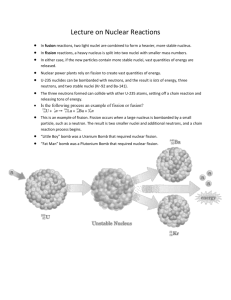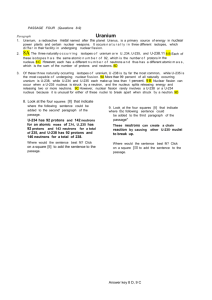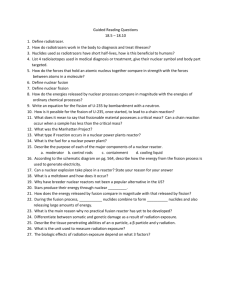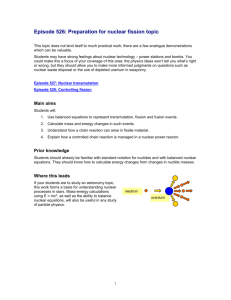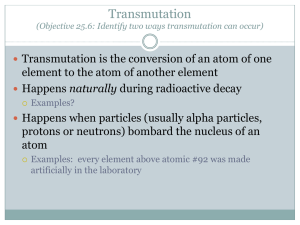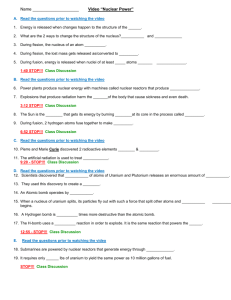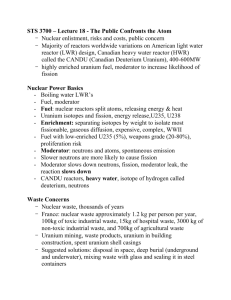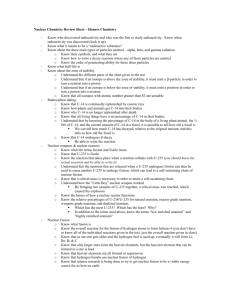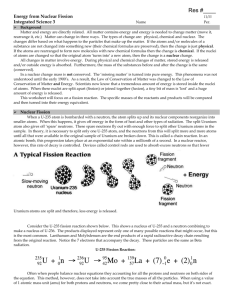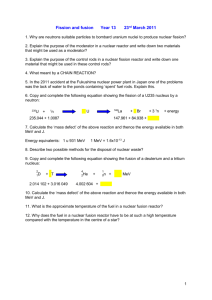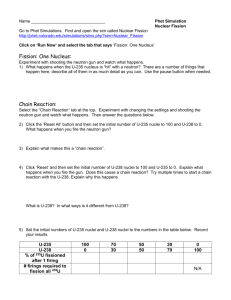NUCLEAR PHYSICS REVIEW QUESTIONS
advertisement
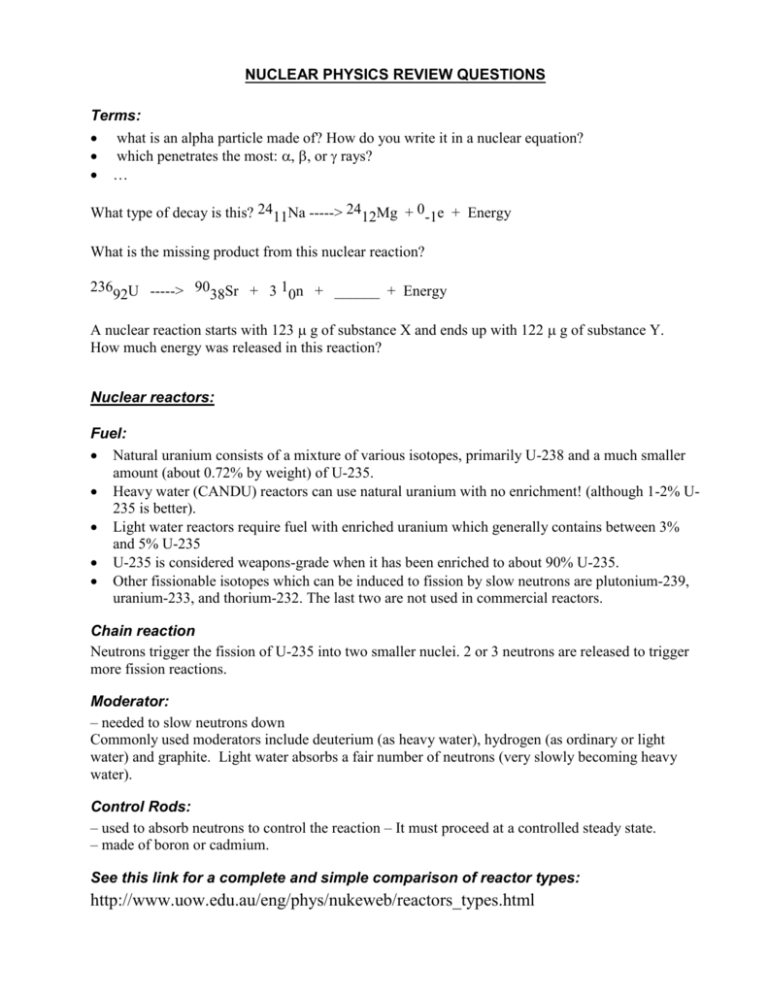
NUCLEAR PHYSICS REVIEW QUESTIONS Terms: what is an alpha particle made of? How do you write it in a nuclear equation? which penetrates the most: , , or rays? … What type of decay is this? 2411Na -----> 2412Mg + 0-1e + Energy What is the missing product from this nuclear reaction? 23692U -----> 9038Sr + 3 10n + ______ + Energy A nuclear reaction starts with 123 g of substance X and ends up with 122 g of substance Y. How much energy was released in this reaction? Nuclear reactors: Fuel: Natural uranium consists of a mixture of various isotopes, primarily U-238 and a much smaller amount (about 0.72% by weight) of U-235. Heavy water (CANDU) reactors can use natural uranium with no enrichment! (although 1-2% U235 is better). Light water reactors require fuel with enriched uranium which generally contains between 3% and 5% U-235 U-235 is considered weapons-grade when it has been enriched to about 90% U-235. Other fissionable isotopes which can be induced to fission by slow neutrons are plutonium-239, uranium-233, and thorium-232. The last two are not used in commercial reactors. Chain reaction Neutrons trigger the fission of U-235 into two smaller nuclei. 2 or 3 neutrons are released to trigger more fission reactions. Moderator: – needed to slow neutrons down Commonly used moderators include deuterium (as heavy water), hydrogen (as ordinary or light water) and graphite. Light water absorbs a fair number of neutrons (very slowly becoming heavy water). Control Rods: – used to absorb neutrons to control the reaction – It must proceed at a controlled steady state. – made of boron or cadmium. See this link for a complete and simple comparison of reactor types: http://www.uow.edu.au/eng/phys/nukeweb/reactors_types.html Nuclear Weapons There are two basic types of nuclear weapons. 1. The first are weapons which produce their explosive energy through nuclear fission reactions alone. These are known colloquially as atomic bombs, A-bombs, or fission bombs. (enriched uranium or plutonium) 2. The second basic type of nuclear weapon produces a large amount of its energy through nuclear fusion reactions, and can be over a thousand times more powerful than fission bombs. These are known as hydrogen bombs, H-bombs, thermonuclear bombs, or fusion bombs. A fission bomb (Uranium or plutonium) is detonated in a specially manufactured compartment adjacent to a fusion fuel. The gamma and X-rays of the fission explosion compress and heat a capsule of tritium, deuterium, or lithium deuteride starting a fusion reaction.
